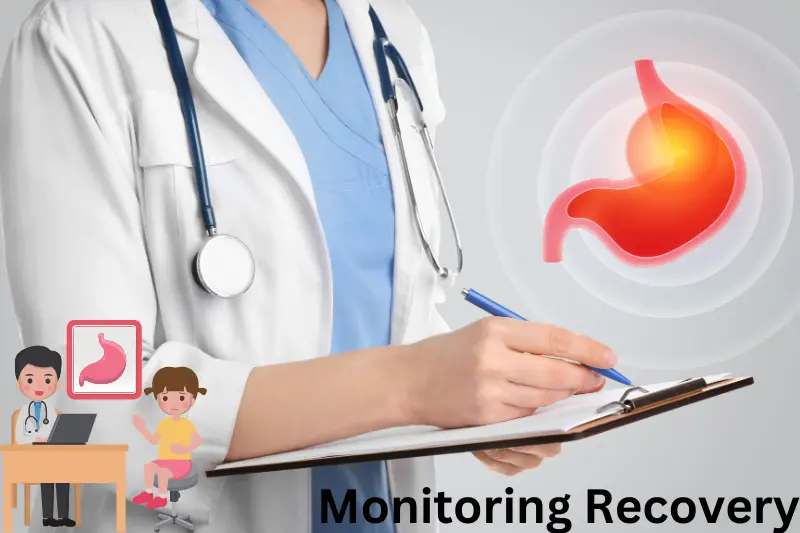“At WellHealthOrganic.com, we highlight the key signs of gastroenteritis, commonly known as the stomach flu. This condition involves inflammation of the stomach and intestines, typically triggered by infectious agents like viruses, bacteria, and parasites. Recognizing these signs is crucial for timely and effective treatment. Our guide explores these critical indicators and provides practical advice on managing and preventing gastroenteritis.”
What is “WellHealthOrganic.com: Key Signs of Gastroenteritis”?

“WellHealthOrganic.com: Key Signs of Gastroenteritis” is an informative resource that aims to educate readers on the fundamental aspects of gastroenteritis. The article comprehensively covers symptoms, causes, and treatment options for this common condition, making it essential for anyone seeking to understand and manage gastroenteritis effectively.
Understanding the importance of “WellHealthOrganic.com: Key Signs of Gastroenteritis” is crucial for several reasons:
Early Detection
Recognizing gastroenteritis symptoms early is vital for initiating prompt treatment. Early intervention can help alleviate symptoms faster, reduce dehydration risks, and prevent infection transmission to others.
Prevention of Spread
Gastroenteritis, particularly viral forms like norovirus and rotavirus, is highly contagious. Awareness of symptoms enables individuals to take preventive measures, crucial in environments such as schools, workplaces, and healthcare settings.
Proper Management
Effective management involves more than symptom relief. It includes maintaining hydration, following dietary recommendations, and knowing when medical attention is necessary, all of which can aid in preventing complications and expediting recovery.
Avoiding Complications
Untreated gastroenteritis can lead to severe dehydration and other complications. Understanding symptoms and appropriate actions helps individuals, especially vulnerable groups like infants, the elderly, and immunocompromised individuals, avoid serious health issues.
Seeking Medical Attention
Recognizing when medical help is warranted is critical. While many cases resolve independently, severe gastroenteritis may require professional intervention. Awareness of symptom severity guides timely decisions about seeking medical care.
By promoting early recognition, prevention strategies, effective management, and timely medical intervention, “WellHealthOrganic.com: Key Signs of Gastroenteritis” empowers readers to proactively address this common ailment for better health outcomes.
Step-by-Step Guide: “WellHealthOrganic.com: Key Signs of Gastroenteritis”
Recognizing Nausea and Vomiting
Nausea and vomiting are early signs of gastroenteritis caused by stomach and intestinal inflammation. To manage these symptoms:
- Sip clear fluids like water or oral rehydration solutions.
- Avoid solid foods until vomiting subsides.
- Gradually reintroduce bland foods such as crackers or toast.
Identifying Diarrhea
Diarrhea, frequent and watery stools, is a primary symptom. Manage it by:
- Drinking plenty of fluids to replace lost electrolytes.
- Avoiding dairy, fatty, or spicy foods.
- Eating small, frequent, easy-to-digest meals.
Noting Abdominal Pain and Cramps
Abdominal pain and cramps are due to intestinal irritation. Manage discomfort by:
- Apply a warm compress to ease cramps.
- Using over-the-counter pain relief as advised.
- Avoiding trigger foods.
Checking for Fever
A low-grade fever is common. Manage it by:
- Using fever-reducing medications if appropriate.
- Staying hydrated and resting in a comfortable environment.
Assessing for Dehydration
Watch for signs like dry mouth or decreased urine output. Prevent dehydration by:
- Drinking oral rehydration solutions or electrolyte-rich fluids.
- Monitoring urine color; darker urine indicates dehydration.
- Seeking medical attention if dehydration persists.
Seeking Medical Attention
Seek medical help if:
- Symptoms are severe or last more than a few days.
- Blood appears in vomit or stool.
- High fever, severe dehydration signs, or persistent pain occur.
- Symptoms affect vulnerable individuals.
Taking Preventive Measures
Prevent gastroenteritis by:
- Washing hands thoroughly and frequently.
- Ensuring food safety and avoiding undercooked meats.
- Drinking safe water and avoiding contaminated sources.
Rest and Hydration
Ensure recovery with:
- Taking breaks for rest and recovery.
- Sipping fluids regularly to stay hydrated.
- Avoid strenuous activities until fully recovered.
Gradual Introduction of Foods
After symptoms improve, reintroduce foods gradually:
- Start with bland foods like bananas, rice, applesauce, and toast.
- Gradually reintroduce other foods as tolerated.
- Avoid heavy, spicy, or high-fat foods until fully recovered.
This version maintains clarity and provides actionable steps for managing and preventing gastroenteritis effectively.
Monitoring Recovery

Monitoring progress during recovery helps ensure a return to normal health:
- Keep track of fluid intake and output to ensure proper hydration.
- Watch for any recurring or worsening symptoms that might require medical attention.
- Gradually increase physical activity levels as strength and energy return.
Tips for Managing Gastroenteritis Symptoms
- Stay Hydrated: Drink clear fluids or oral rehydration solutions regularly to prevent dehydration.
- Eat Small Meals: Opt for small, frequent meals that are easy to digest, avoiding large meals.
- Rest: Ensure adequate rest to support your body’s recovery process.
- Maintain Hygiene: Wash your hands frequently to reduce the risk of spreading infection.
- Monitor Symptoms: Keep track of symptom severity and duration; seek medical advice if symptoms worsen or persist.
Advantages and Disadvantages of Understanding Gastroenteritis Symptoms
Advantages
1. Early Detection and Treatment: Recognizing symptoms early allows for prompt treatment, reducing the duration and severity of the illness.
2. Prevention of Complications: Understanding symptoms helps prevent complications such as severe dehydration.
3. Informed Decisions: Knowledge of symptoms empowers individuals to make informed decisions about seeking medical care.
4. Reduced Spread: Awareness of symptoms and preventive measures can help limit the spread of gastroenteritis in communities.
Disadvantages
1. Over-Medication Risk: Misinterpreting symptoms may lead to unnecessary use of medications.
2. Anxiety and Stress: Awareness of symptoms might cause anxiety or stress, especially if symptoms are misattributed to more severe conditions.
3. Self-Diagnosis: Relying solely on symptom knowledge can lead to incorrect self-diagnosis without professional consultation.
4. Misinterpretation Risk: Readers may misinterpret symptoms, leading to self-diagnosis without professional guidance.
Frequently Asked Question
What are the critical signs of gastroenteritis?
The key signs include nausea, vomiting, diarrhea, abdominal pain, cramps, fever, and dehydration.
How can I manage gastroenteritis symptoms at home?
Manage symptoms by staying hydrated with clear fluids, eating small, easy-to-digest meals, resting, and maintaining good hygiene.
When should I seek medical attention for gastroenteritis?
Seek medical help if symptoms are severe, persistent for more than a few days, including blood in vomit or stool, or if dehydration signs occur.
How can gastroenteritis be prevented?
Prevent gastroenteritis by washing hands frequently, handling food safely, and avoiding contaminated water sources.
What is the importance of understanding gastroenteritis symptoms?
Understanding symptoms helps with early detection and prompt treatment, prevents complications like dehydration, and reduces infection transmission.
Conclusion
Undegastroenteritis’snteritis’s key signs and management is crucial for timely intervention and effective care. By recognizing symptoms early, practicing preventive measures, and knowing when to seek medical attention, individuals can mitigate discomfort, prevent complications like dehydration, and promote faster recovery. To manage gastroenteritis effectively, stay informed, maintain good hygiene practices, and prioritize hydration and rest.
